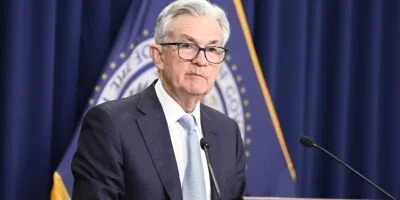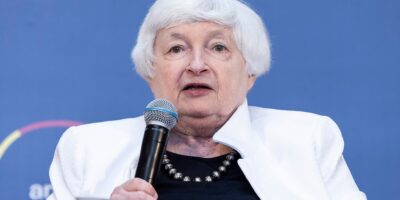What’s the Harm in Raising the Inflation Target?

Economist Jason Furman recently called for the Federal Reserve to raise its inflation target from 2 to 3 percent. In defending his position, Furman argued that while unexpected inflation results in redistribution that harms creditors and workers, expected inflation does not because workers and creditors will incorporate the higher expected inflation rate into their wage and debt contracts. Thus, Furman concludes, there is no reason to worry about the effect that a higher inflation target has on workers and creditors.
Underlying Furman’s claim is the principle of monetary neutrality—the idea that in the long run, an increase in the growth rate of the money supply will not affect real (i.e., inflation-adjusted) wages and interest income. The reason is that as the prices of goods and services rise in response to the increasing quantity of money in circulation, so does the demand for labor services and credit. Thus, while raising the inflation target increases the prices of goods and services, it will also increase nominal (i.e., non-inflation-adjusted) wages and interest rates, leaving workers and creditors with the same purchasing power they had under the lower inflation target.
Furman’s analysis would be correct were not for the fact that in the US the tax system does not account for inflation. When nominal wages and interest income increase, workers and creditors shift into higher tax brackets despite their real incomes being no higher than before. As the Fed’s inflation target increases, so will the real tax burden workers and creditors face. Thus, it is still harmful even if they correctly anticipate the higher inflation and build it into their wage and debt contracts.
This higher real tax burden has another, more subtle effect on wages that harms workers. The demand for workers’ labor services depends, in part, on the amount of capital they can use for production. The more capital there is, the higher the demand for labor services, all else equal. Thus, as the stock of capital increases, so will wages, making workers better off. But the reverse is also true; wages will fall as the capital stock shrinks.
The size of the capital stock depends, in part, on creditors’ willingness to supply the funds necessary to finance investment. This willingness, in turn, depends on their expected return on investment. Raising the inflation target increases creditors’ real tax burden, reducing the expected return they earn on their investments, thereby making creditors less willing to supply credit to borrowers. As a result, the real interest rate rises and the quantity of investment falls, diminishing the size of the capital stock.
With less capital available, the demand for labor will fall, pulling real wages down with it. Thus, in addition to increasing workers’ real tax burden, raising the inflation target reduces workers’ real wages by reducing the demand for their labor services.
Workers and creditors are also consumers, and a higher inflation target harms consumers, too.
One of the reasons people keep a part of their wealth in the form of cash balances despite the explicit return on those balances being relatively low is that they provide a valuable service—namely, they enable us to carry out transactions more easily than other types of assets, increasing the gains from exchange.
Consumers’ cash balances depend, in part, on the yield money pays, which consists of two components. The first is the value of the transaction services cash provides, and the second is the explicit rate of return earned on those balances, which tends to be negative owing to inflation. Consumers will hold fewer cash balances when the inflation rate increases relative to the value of the transaction services money provides because the inflation rate determines the cost of those services. Thus, people will reduce their cash balances if the Fed raises its inflation target.
Raising the cost of holding cash balances harms consumers in two ways. First, because they carry less cash, consumers will make fewer transactions and realize smaller gains from exchange. The reason is straightforward: With fewer cash balances, trade becomes more costly, so consumers will only carry out those transactions that are sufficiently valuable to cover the additional costs of doing so. Estimates of the value lost from even moderate expected inflation suggest that Furman should not be so cavalier in brushing the cost aside.
A higher inflation rate also harms consumers by forcing them to economize on their cash holdings in wasteful ways relative to a situation with lower inflation. For example, they may visit ATMs or shop more frequently to economize on their cash balances. While the magnitude of these so-called shoe-leather costs is not likely to be all that much larger under a 3 percent inflation target than a 2 percent target, they are not zero. Thus, while the harm they cause to consumers may be minor, they are harmful nonetheless.
While there may be an economic case for raising the inflation target, Furman and others who support doing so, like Paul Krugman, have not made a strong case for doing so. They should be more careful when claiming that raising the inflation target will not cause harm because it will. We might quibble over the magnitude of costs associated with higher expected inflation. But these costs should not be ignored.









